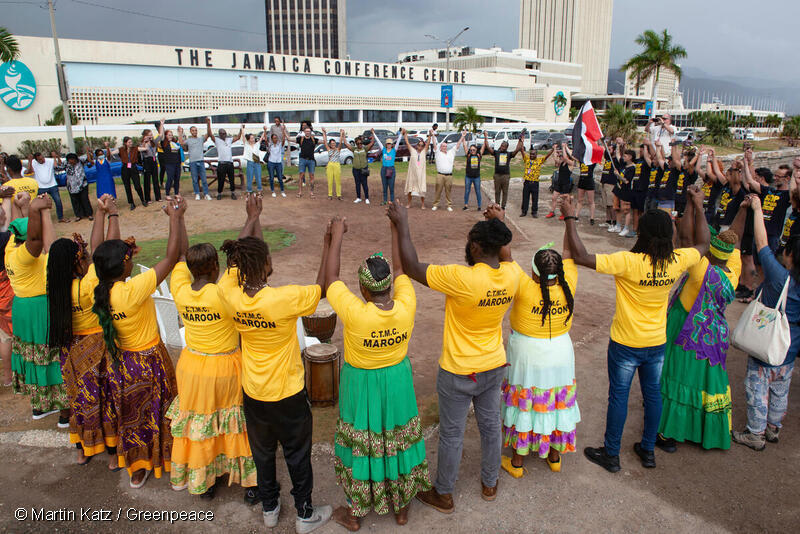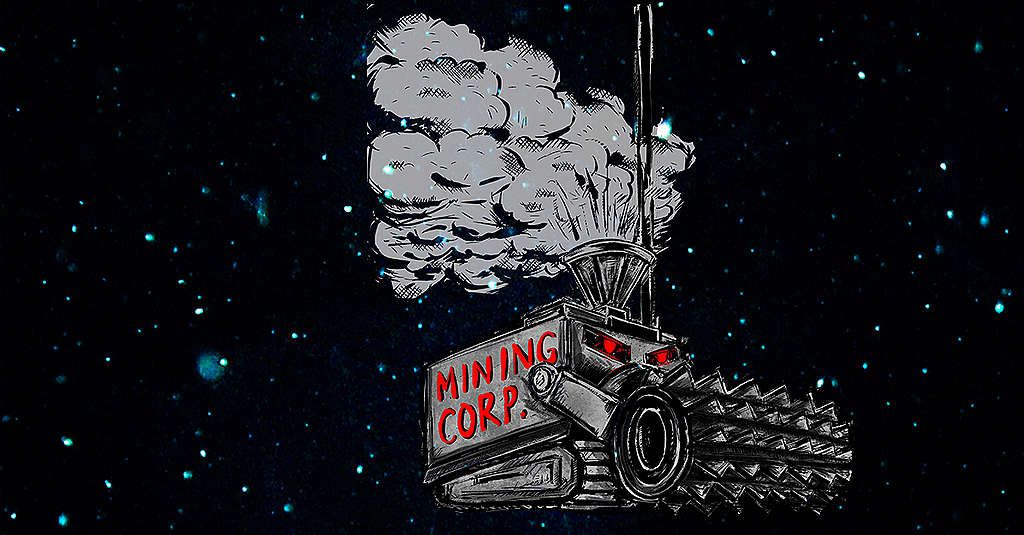In the depths of our oceans lies a mysterious realm, a vast expanse known as the deep sea. This remote and relatively unexplored environment holds secrets of marine life, geological wonders, and delicate ecosystems that have evolved over millions of years. These untouched areas hold immense cultural and spiritual importance to indigenous people whose ancestors used traditional navigation to traverse the vast oceans.
However, a new threat has revealed itself: deep sea mining. As greedy corporations lust for minerals, so does the push to exploit these deep-sea spaces.
To match the enormity of the threat, our message is clear: ban deep sea mining.
PETITION: Stop deep sea mining
Irreplaceable biodiversity is at risk
The deep sea is home to a remarkable array of species, many of which are yet to be discovered and understood. These ecosystems have adapted to extreme conditions, and they play a crucial role in regulating the Earth’s climate and maintaining its ecological balance. Deep sea mining could cause irreversible damage to these fragile habitats, disrupting food chains, endangering species, and wiping out entire ecosystems before we even have a chance to comprehend their significance.
The unique ecosystems of the deep sea are intertwined in complex ways that we are only beginning to unravel. Disturbing one part of this interconnected web can have cascading effects throughout the entire ecosystem. The removal of minerals from the seabed, the creation of sediment plumes, and the introduction of pollutants during mining operations could lead to the loss of biodiversity, altered nutrient cycles, and potentially exacerbate the global threat of climate change.
The deep sea also harbors remarkable geological features, including hydrothermal vents and seamounts. These awe-inspiring formations are home to diverse and specialized life forms that have adapted to the extreme conditions around them. Extracting minerals from these areas would devastate these unique habitats.
Prioritising environmental conservation
Deep sea mining must be banned! In its current state, this destructive industry is largely unregulated. The absence of comprehensive international frameworks means that the industry could cause widespread damage with little oversight. A lack of infrastructure is yet another reason to ban this destructive industry from ever starting.
However, when people unite and stand together for ocean protection, we make courageous efforts. Because of the presence and passion of activists from the Pacific during negotiations at the International Seabed Authority, we’ve had a huge impact this year but our job is not done – there is still very little standing between the mining machines and the deep ocean floor.
The big new development is that the main deep sea mining company, The Metals Company, plans to apply to mine in July 2024 and claims they’ll have mining machines in the oceans by end 2025 – more than doubling the size of their mining operation!
July 2024 is also when governments will formally debate a moratorium on deep sea mining – which, if it goes well, could set up a vote in 2025 to protect the deep ocean for the long-term.
Pacific activists rising against deep sea mining. Pacific activists have provided a crucial indigenous narrative to stopping deep sea mining. The long-term environmental impact of deep sea mining remains largely unknown.
The perspectives and experiences of Pacific activists like Solomon Pili Kahoʻohalahala, Alanna Matamaru Smith, Hinano Murphy, Quack Pirihi, and Joey Tau in these spaces have been extremely important. Through sharing cultural navigation and connection stories, and explaining the depths of their cultural link to the ocean, their presence is powerful.

Maintaining the mana of the global commons
The deep sea is a realm of mystery and wonder, a crucible of evolution and a critical component of our planet’s delicate balance. To preserve the integrity of this vital ecosystem, we must advocate for a ban on deep sea mining.
As kaitiaki (stewards) of the Earth, it is our duty to protect the unknown and the vulnerable, to ensure that the generations that follow inherit a planet that is rich in diversity, resilience, and natural beauty. Banning deep sea mining is not just an act of preservation; it’s a commitment to the sustainable and responsible stewardship of our global commons.
Together, our campaigning with allies has already got more than 20 governments to support a moratorium as the only responsible answer to the industry’s reckless rush.
Huge progress has been made this year in pushing back on this destructive industry, but we must keep going. The ocean needs our full support in advocating for its protection more than ever. As we’ve shown, our voices are stronger together and we will show up everytime this destructive industry makes a sound.

It’s time for New Zealand to take a stand. Join our call on the New Zealand government to back a global moratorium on seabed mining.
